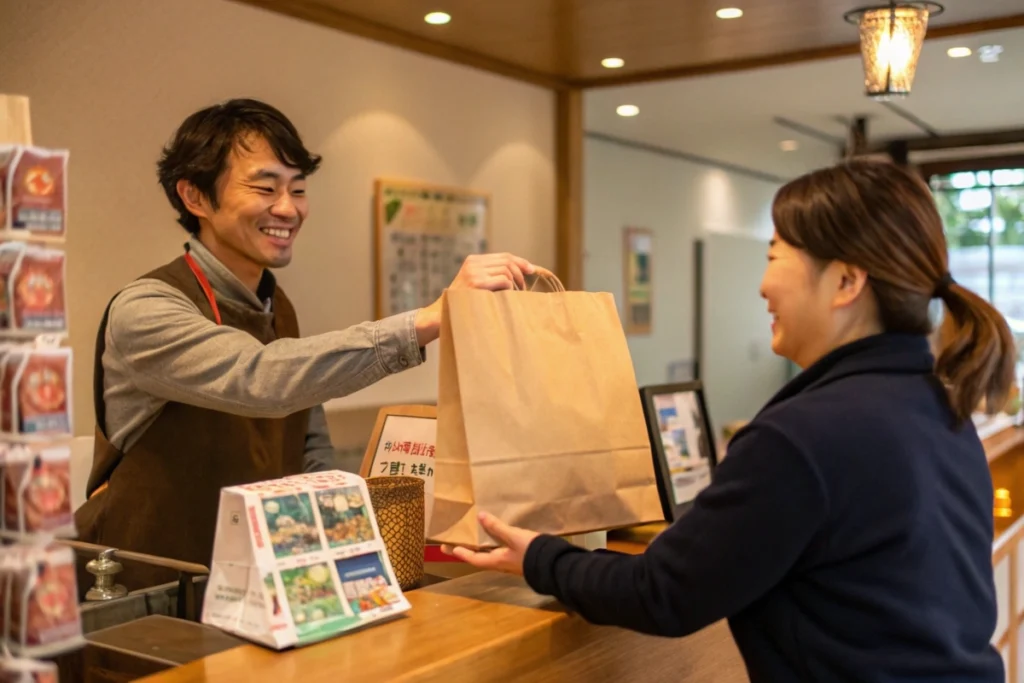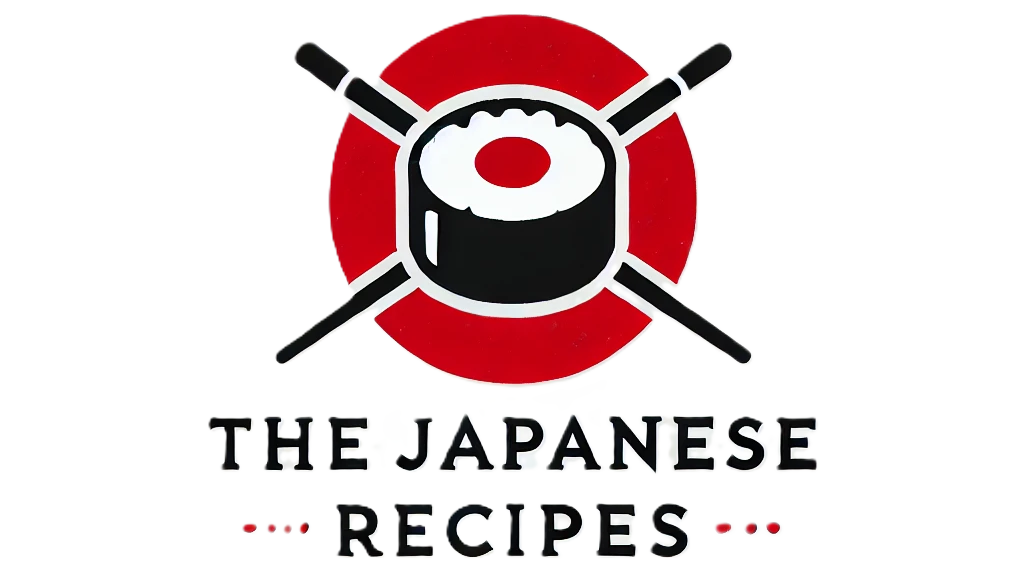If you live in or near Pittsburgh, discovering tokyo japanese food store pittsburgh can transform your home-cooking adventures. Thanks to a burgeoning interest in Japanese cuisine, local demand for authentic groceries, fresh produce, and specialized ingredients has soared. Whether you’re craving sushi-grade fish, artisanal soy sauce, or elusive snack flavors that once seemed impossible to find, Pittsburgh’s Japanese food scene has grown more vibrant than ever. At the heart of this scene lies Tokyo Japanese Food Store, known for quality, variety, and cultural authenticity.
In this 3,000-word comprehensive guide, we’ll explore everything you need to know about shopping at tokyo japanese food store pittsburgh—from the store’s origins and product highlights to practical tips and must-try items. We’ll also touch on how it fits into the broader landscape of japanese grocery store pittsburgh, bridging tradition and modern convenience. If you’re keen on re-creating your favorite Japanese dishes at home, you can find almost every essential ingredient right here.
As you plan your next cooking session, consider referencing our japanese-chicken-fried-rice-recipe- to put your newly purchased ingredients to good use. Let’s dive into the story, products, and allure that make Tokyo Japanese Food Store in Pittsburgh a must-visit spot for food enthusiasts.
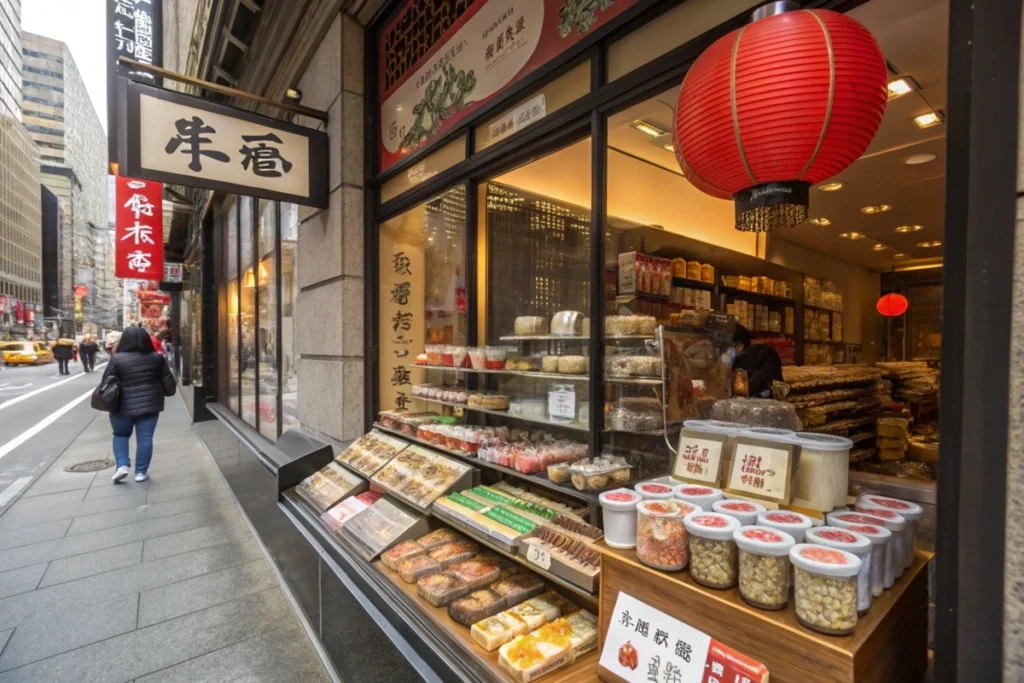
1. Overview of Tokyo Japanese Food Store Pittsburgh
Store Background and Mission
Tokyo Japanese Food Store Pittsburgh, often shortened to Tokyo Store, aims to bring authentic Japanese ingredients and culinary culture to local residents. Initially established to cater to the Japanese expatriate community, it soon attracted foodies eager for real wasabi, freshly milled rice, and traditional condiments. Over time, its reputation grew, becoming a cultural hub for anyone curious about cooking or exploring Japanese fare.
- Founding Principles: The store prides itself on authenticity, quality, and variety.
- Community Ties: Tokyo Store frequently hosts seasonal events and cooking demos, bridging cultural gaps and enriching Pittsburgh’s diverse food scene.
Location and Hours of Operation
Located within the city’s outskirts, near bustling neighborhoods, Tokyo Store is easily accessible via car or public transport. Their hours of operation tokyo japanese food store pittsburgh typically fall between 9 AM and 7 PM, though special holiday hours may apply. They occasionally run early or late openings during major Japanese festivals, welcoming crowds eager to gather specialty items.
Product Range: From Everyday Basics to Rare Finds
Staples
- Short-Grain Rice: Varieties like koshihikari or hitomebore, prized for perfect sushi or onigiri.
- Soy Sauce & Miso: Multiple brands at different price points ensure you find the flavor you love—light, dark, sweet, or robust.
- Instant Ramen: A shelf dedicated to top ramen brands like Nissin or Sapporo Ichiban, plus spicy and vegetarian versions.
Premium Items
- Sushi-Grade Fish: Fresh salmon, tuna, yellowtail, or snapper, carefully packaged for home sushi enthusiasts.
- Seasonal Veggies: Daikon radish, shiso leaves, and Japanese sweet potatoes arrive weekly, ensuring crispness.
- Desserts & Sweets: Imported mochi, matcha-flavored kitkats, and dorayaki pancakes.
Snacks & Sides
- Pocky & Pretz: Iconic Japanese cookie sticks in flavors from chocolate to green tea.
- Rice Crackers & Seaweed Snacks: Perfect for a quick savory bite.
- Sauces & Marinades: Varied tempura sauces, teriyaki glazes, and hot-pot bases for adventurous home cooks.
Beyond Groceries: Cultural Experiences
Visitors can sometimes find curated displays of Japanese cookware—like bamboo rolling mats for sushi or cast-iron teapots. The store might also run tasting events, letting customers sample new snack arrivals or seasonal mochi. These interactive experiences shape Tokyo Store into more than just a grocery spot; it’s a mini cultural getaway, reminding Pittsburghers that Japanese cuisine extends far beyond sushi rolls or ramen bowls.
For those who want to replicate restaurant-level dishes at home, tokyo japanese food store pittsburgh is a go-to. Check out authentic-japanese-barbecue-sauce-chicken-recipe-easy-delicious for a marinade that pairs wonderfully with any chicken you’ll find at the store’s fresh meat section. Each ingredient you pick up can elevate your cooking to new heights, reflecting the store’s commitment to authenticity and culinary excellence.

2. Benefits of Shopping Local vs. Online
The Local Advantage
Although e-commerce has exploded—letting you order japanese food online—visiting a local store like Tokyo Japanese Food Store Pittsburgh offers unique benefits:
- Immediate Access: No waiting for shipping; you can cook your new recipe the same day.
- Freshness Assurance: You can inspect produce, fish, and perishable items before purchase.
- Personalized Guidance: Store staff often have deep knowledge of Japanese culinary traditions and can recommend products or share cooking tips.
- Community Engagement: Local events and tastings help you meet fellow food enthusiasts.
Comparing E-Commerce
Still, many prefer japanese grocery store pittsburgh options online for convenience. Some local shops also run e-stores, letting you enjoy curbside pickup or home delivery.
Pros
- Accessibility for those living far from Pittsburgh’s city center or lacking transportation.
- Wider Range if the local store’s physical location is smaller than its warehouse.
- Time-Saving especially for busy schedules or bulk buys.
Cons
- Shipping costs may escalate if you want cold-pack shipments for fish or produce.
- Inability to personally see or smell items, risking dissatisfaction if the product doesn’t meet your expectations.
Embracing Hybrid Approaches
Clever shoppers might blend both worlds: frequent in-store visits for produce or fresh fish, while ordering heavier items—like rice sacks or large soy sauce jugs—online. This combination reduces shipping fees yet harnesses the store’s personal touch for perishable goods.
For instance, if you’re planning a large meal featuring japanese-corn-recipe as a side dish, you might prefer picking out sweet corn in person. Meanwhile, you can order your staple oils or sauce bases from a trusted online source for cost efficiency.
Real-Life Scenarios
Scenario 1: A sushi party where you want hand-picked fish for maximum freshness—visiting Tokyo Store ensures top-quality cuts. At the same time, you order a new brand of miso online after reading rave reviews about its nuanced flavor.
Scenario 2: When cooking traditional-japanese-desserts-recipe(https://thejapaneserecipes.com/traditional-japanese-desserts-recipe/), specialized sweet glutinous rice or rare matcha powders may only be found online or at the store’s hidden corner shelf. You can check both channels for the best deal or immediate availability.
In short, leveraging local stores and online shops ensures you don’t miss out on anything. Tokyo Japanese Food Store Pittsburgh uniquely sits at that intersection, bridging offline authenticity with modern convenience. If you want quick tips for deciding which route suits you for each ingredient, store staff can advise on shelf life, brand reputations, and seasonal stock changes.

3. History and Context of Tokyo Japanese Food Store Pittsburgh
Early Beginnings
The story of tokyo japanese food store pittsburgh begins modestly. Inspired by a niche community’s longing for genuine Japanese products, a small family-run outfit started importing staples like umeboshi (pickled plums), shoyu (soy sauce), and nori back in the late 1980s. Initially, they served just a handful of expats, offering a makeshift store in a small warehouse. Word spread through personal networks, bridging an unmet need in Pittsburgh’s diverse tapestry.
Growing Demand and Expansion
As Japanese pop culture (anime, J-pop, manga) gained global traction in the 1990s and 2000s, local students and fans also developed cravings for candies, instant ramen, or matcha beverages they saw on screen. The store capitalized on this wave, gradually expanding its range to include snacks, beverages, and frozen items. Partnerships with local sushi restaurants flourished; chefs needed consistent supplies of authentic fish, mirin, or wasabi for their evolving menus.
- Key Milestones:
- 1995: Moved to a larger location near a bustling commercial district.
- 2002: Began sourcing fresh fish weekly, forging relationships with coastal distributors.
- 2010: Officially rebranded as Tokyo Japanese Food Store, emphasizing a broader product line and cultural events.
Influence of Cultural Exchanges
Pittsburgh’s rising status as a hub for tech and academia also boosted the store’s prominence. As foreign students enrolled at local universities, demand for comfort foods from home soared. Meanwhile, cooking classes or cultural festivals introduced non-Japanese residents to distinctive ingredients like katsuobushi (bonito flakes) or negitoro (minced tuna). Tokyo Store responded by offering variety packs, bilingual labeling, and staff versed in multiple languages.
Evolution in the Digital Age
By the mid-2010s, the store recognized online commerce potential, launching a website for partial e-sales. This hybrid model let loyal customers order essential items for curbside pick-up or limited shipping. Although not as extensive as large e-commerce sites, their curated online stock catered to niche requests—like special mochi for Oshogatsu (New Year) or limited-edition snack flavors. The store maintains an active social media presence, sharing recipe ideas, monthly deals, and updates on hours of operation.
Modern Identity
Today, tokyo japanese food store pittsburgh stands as an anchor in the local Japanese culinary community. It regularly sponsors cultural events, from hanami (cherry blossom viewing) parties to kimono dress-up days. This synergy of commerce, culture, and hospitality cements the store’s role in Pittsburgh’s gastronomic and multicultural landscape. If you’re exploring a new recipe—like japanese-vegan-recipes—count on Tokyo Store for specialized tofu, seaweed, or vegan dashi. Their legacy of bridging tradition and modern tastes underlies every transaction.

4. Practical Examples and Use Cases
1. Weekly Shopping for Fresh Ingredients
A local sushi chef swings by tokyo japanese food store pittsburgh each Thursday for the store’s newly arrived fish. He handpicks salmon fillets and fresh wasabi root, ensuring his restaurant’s weekend rush has impeccable produce. He also grabs staples like short-grain rice and seasoned seaweed to replenish stock. This weekly routine fosters trust and consistency, demonstrating how crucial the store is for local culinary professionals.
2. A Themed Dinner Party
Imagine hosting a Japanese-themed dinner for friends. You decide to make miso soup, tempura, and finish with a green tea dessert. Stopping at the store, you grab tempura flour, miso paste, fresh veggies, and matcha powder. In the sake section, you find a perfect brew to pair with the meal. The staff recommends traditional-japanese-desserts-recipe to guide you through sweet endings. The result? A memorable evening that immerses guests in authentic flavors without the hassle of multiple store visits.
3. University Student on a Budget
A Japanese exchange student at Carnegie Mellon needs comfort foods from home, but city bus schedules complicate frequent store trips. She checks the store’s website to see if they offer curbside pickup or shipping. She places an online order for instant miso soup, onigiri wrappers, and soy sauce. By scheduling curbside pickup, she saves time and money, ensuring she can cook a quick meal in her dorm. This scenario showcases how the store caters to students juggling classes and budgets.
4. Corporate Team-Building
A local tech company planning a team-building event decides to hold a sushi-making workshop. They contact tokyo japanese food store pittsburgh for fresh fish, bamboo rolling mats, and sauces. The store even provides short demonstration videos or references to steak-japanese-recipe for another themed event. During the workshop, employees learn fundamental sushi-rolling skills, fostering collaboration and cultural appreciation.
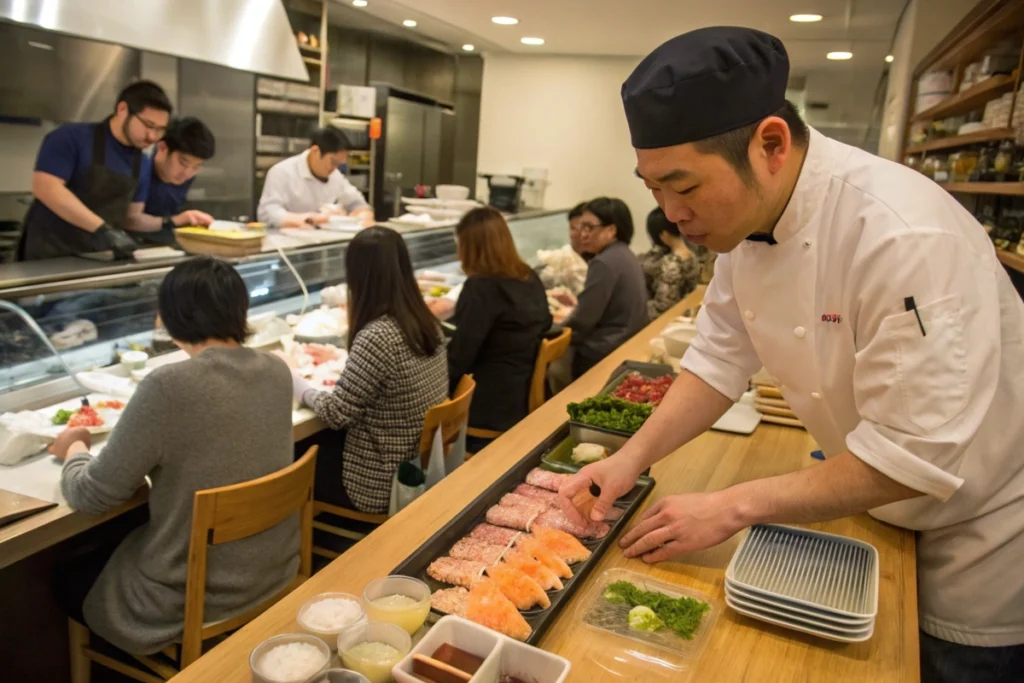
5. FAQs about Tokyo Japanese Food Store Pittsburgh
1. Where is the oldest Japanese grocery store in the US?
While Pittsburgh hosts well-established stores, the oldest Japanese grocery store in the United States is often considered to be located on the West Coast. For instance, some date back to early Japanese immigration waves in California. Though not the oldest, tokyo japanese food store pittsburgh has carved its own legacy since the late 1980s.
2. Can you buy American food in Japan?
Yes, American food is widely available in major Japanese cities. Large supermarket chains carry imported goods like cereals, snacks, and even specialty items. However, local Japanese stores in the U.S. focus on delivering genuine Japanese products rather than American imports. At Tokyo Store, you’ll mostly find items directly from Japan, with limited local produce for convenience.
3. What are Tokyo Store’s hours of operation?
Typical hours of operation tokyo japanese food store pittsburgh run from 9 AM to 7 PM, Monday through Saturday, with shorter hours on Sunday. During major Japanese holidays or special events, they may extend or adjust hours. Always check their social media or website for the latest schedule.
4. Is there a Japanese grocery store in Pittsburgh for fresh sushi-grade fish?
Yes, Tokyo Store is known for restocking sushi-grade fish regularly—usually timed so chefs and home cooks can snag fresh fillets before the weekend. Call ahead or check their social media to confirm availability.
5. Does Tokyo Store offer online ordering or delivery?
They do maintain an online presence, but the offerings vary. Some products can be shipped, while fresh or frozen goods may only be available for in-store or curbside pickup. This hybrid approach helps them ensure freshness and quality control.
6. Any special promotions or loyalty programs?
The store occasionally runs promotions on seasonal items—like discounted mochi or holiday-themed snack bundles. They may also have loyalty stamps or membership cards. Follow their newsletter or social media for updates.
7. Which payment methods are accepted?
In addition to cash and major credit cards, some shops accept contactless payments. If you’re unsure, a quick phone call clarifies accepted methods—particularly for large orders involving fresh fish or bulk rice.
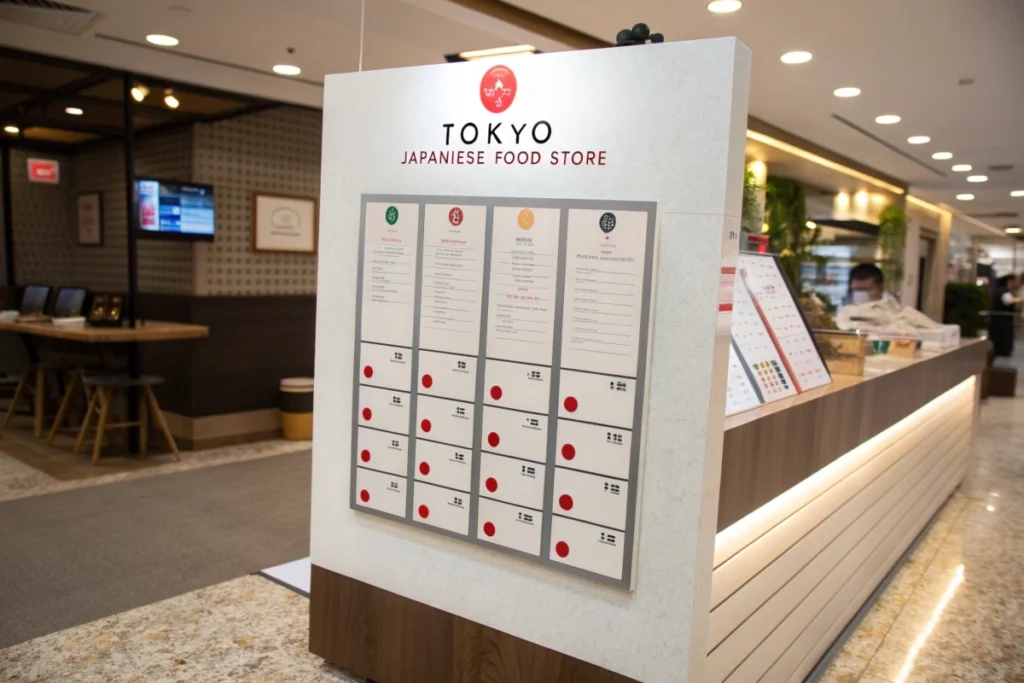
Conclusion
Tokyo japanese food store pittsburgh is more than a grocery outlet—it’s a cultural bridge linking Japan’s culinary treasures with Pittsburgh’s thriving food scene. From staple items like miso, shoyu, and koshihikari rice to specialty goods like matcha snacks and sushi-grade fish, the store caters to everyone from casual cooks to professional chefs. Its deep roots in the local community, combined with an evolving approach to e-commerce and curbside pickup, ensure a seamless shopping experience for diverse lifestyles.
As you plan your next meal—be it a quick stir-fry or an elaborate omakase dinner—the staff and curated selections at Tokyo Store can simplify your search for quality, authenticity, and fresh flavors. If you’re looking for more culinary inspiration, check out easy-japanese-recipes to see how these groceries elevate everyday meals. Take advantage of in-store cultural insights, product recommendations, and event announcements to deepen your understanding of Japanese cuisine. Ultimately, by choosing Tokyo Japanese Food Store Pittsburgh, you invest in a local institution that weaves together tradition, innovation, and the comforting tastes of home—one that resonates with seasoned aficionados and newcomers alike.
